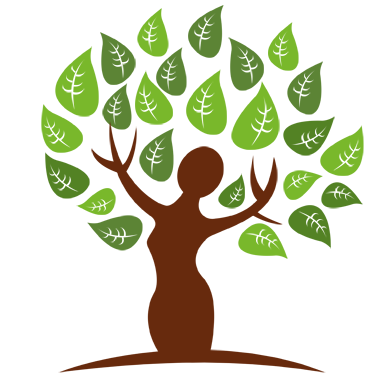Understanding Acid Reflux and GERD
Many patients visit the acupuncture office in Mamaroneck with complaints of acid reflux. Some are on medications, while others are not. Many of these patients have frequent bouts of burping , burning sensation in stomach and throat, coughing, poor sleep, chest pain and regurgitation. A lot of these patients have found acupuncture and Chinese medicine make them feel.a lot better. Please read on to find out how you can be helped as well.
What is Acid Reflux?
Acid reflux occurs when stomach contents flow back into the esophagus and throat. This happens when stomach acid moves upwards instead of downwards, leading to discomfort and irritation of the esophageal tissues. While many individuals experience occasional acid reflux, it is often characterized as indigestion, which includes burning stomach pain after eating, or heartburn, a burning sensation in the chest. Although occasional acid reflux can be uncomfortable, it is not classified as a disease. However, chronic acid reflux can negatively affect quality of life and potentially harm tissues.
What is GERD?
Gastroesophageal reflux disease (GERD) is a more severe form of chronic acid reflux, occurring at least twice a week over several weeks. This condition arises when the mechanisms that prevent acid from entering the esophagus malfunction. Unlike temporary acid reflux, GERD is a persistent mechanical issue. It is estimated that around 20% of adults and 10% of children in the U.S. experience GERD, making it a prevalent health concern.
Symptoms of Acid Reflux and GERD
- Burning sensation in the chest (heartburn)
- Noncardiac chest pain
- Nausea
- Sore throat
- Asthma-like symptoms
- Cough
- Poor sleep
- Regurgitation
These symptoms may worsen at night, after consuming large or fatty meals, or when bending over. Babies can also experience GERD, especially if they are born prematurely or have conditions affecting their esophagus. Symptoms in infants may include excessive fussiness, difficulty sleeping, and small episodes of vomiting. Acid reflux occurs when the lower esophageal sphincter (LES) weakens or relaxes. Factors such as hiatal hernias, pregnancy, obesity, and smoking can contribute to the weakening of the LES.
Chinese Medicine Perspectives on Acid Reflux
In Chinese Medicine, acid reflux is viewed as a problem of direction and movement within the digestive system. Once food is swallowed, it should travel down the esophagus and through the digestive tract until it is fully digested and the waste exits the body. This movement should be downward. When acid reflux occurs, it indicates that the movement of the digestive system is counterflowing or partially moving in the wrong direction. Other symptoms of this counterflow include nausea, vomiting, belching, and constipation.
Causes of Counterflow in the Digestive System
The causes of this counterflow are often related to dietary and lifestyle habits. Some may seem obvious, while others may not. The following factors can slow down the digestive system, weaken it, or cause stagnation. Stagnation may start as bloating or indigestion and can lead to further digestive disorders if left unaddressed.
Dietary Causes
Excessive consumption of the following foods can lead to poor digestion and cause things to slow. Once digestion slows it can easily cause a counterflow or an upward movement
These foods should be avoided or greatly reduced until your digestion improves:
- Sweet foods, including cookies, cakes, and processed foods
- Dairy products
- Raw, cold, or iced foods and drinks
These foods can cause upward movement in the body, significantly affecting the digestive system. They are also warming and drying, which can lead to agitation, insomnia, high blood pressure, and the symptoms of counterflow mentioned earlier.
These foods should be avoided or greatly reduced until your digestion improves:
- Spicy foods (such as chilis, cayenne, garlic, and bulb onions)
- Coffee
- Alcohol
Lifestyle Causes
The following lifestyle factors can lead to digestive upset, starting with fatigue and bloating, and can result in a wide range of digestive issues beyond reflux:
- Excessive stress
- Irregular eating times
- Laying down after eating
- Late-night eating
- Distractions while eating
- Poor food combining
- Insufficient chewing
Strategies for Relief from Acid Reflux Symptoms
To alleviate the symptoms of acid reflux and other digestive complaints, it is essential to eliminate as many of the causes listed above as possible. If you choose to seek treatment, we typically begin by investigating the root cause of your condition before working on dietary and lifestyle changes to address it.
Here are some suggestions to help you:
-
Drink Boiled Water: Start your day with boiled water and drink boiled water as your main beverage. Drink it the same temperature you would have tea. This practice can help your stomach relax and break up stagnation in digestion, promoting better movement and reducing bloating and indigestion. For more information on this practice follow this link: Drink Hot Water For Better Health
-
Short Walks After Meals: Consider going for a short walk after your meals, particularly after your evening meal. This encourages the downward movement of the digestive system, aiding in proper digestion. For more information on this practice follow this link: Take A Walk After Eating to Improve Digestion
Acupuncture and Chinese Medicine Can Help
If you try these suggestions and see no improvement, it may be time to schedule an appointment for treatment. We will conduct a thorough evaluation of your body to identify the cause of your discomfort. This assessment will include a review of your diet and lifestyle, leading to a tailored treatment plan that may incorporate acupuncture, bodywork (reflexology and tuina), moxibustion, internal herbal medicine, and more to help you achieve your health goals. Chinese medicine treatments will improve all aspects of digestion and redirect the movement of digestion in the correct direction by encouraging downward movement.
